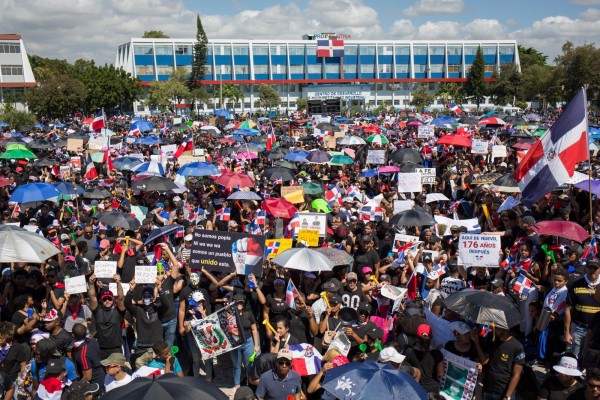
Picture: Fran Alfonso
On February 16th, the Dominican municipal elections had to be suspended by the Central Electoral Board because the automated voting system failed. A few hours after the voting began, the elections had to be canceled. This unprecedented fact had never been seen in the country and caused a great bewilderment that led to loud demonstrations followed by a great meeting on February 27th, Independence Day, in the Plaza de las Banderas of Santo Domingo. Dressed in black, most of those still demonstrating are young people, who protest the electoral system and demand true democracy for the country.
The government called the disruption “regrettable” and asked the Organization of American States (OEA) for an investigation into the possible causes of the incident. Several political scientists explain that the demonstrations of these days, the first of this magnitude since the end of the dictatorship, are the last straw. There is political fatigue towards the ruling party, which has been in power 20 of the past 24 years. Although there have been substantial changes, including various social policies and economic progress has been uninterrupted, problems of security for the average citizen, low quality services such as education, public health, few opportunities for young people, corruption, especially the Odebrecht scandal have undermined people's confidence in the institutions that run the country. Until a few years ago, citizens in the Dominican Republic were far removed from political discussion and in recent years that is changing.
The new date for municipal elections is March 15th, and this year there will also be the general elections, scheduled for May 17th. We hope that this process and these demonstrations will serve peacefully to contribute to a higher quality, transparent and participatory democracy that serves the many challenges of the citizens.









